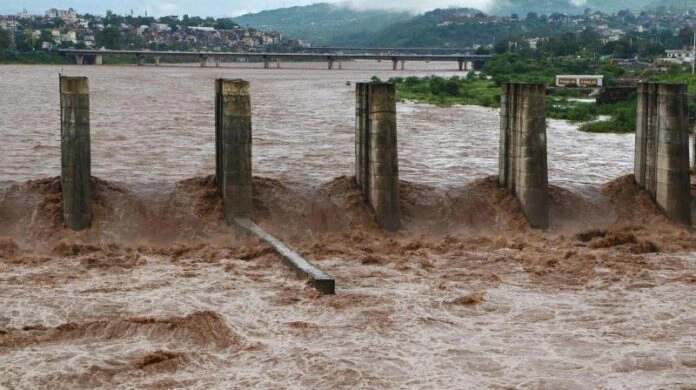- Web Desk
- Feb 19, 2026
NA committee slams govt, opposition over failure to tackle recurring floods
-

- Web Desk Saba Bajeer
- Aug 27, 2025

ISLAMABAD: A meeting of the National Assembly’s Standing Committee on Climate Change on Tuesday turned into a forum of sharp criticism and frustration, as lawmakers voiced concerns over the government’s failure to address recurring floods, rampant deforestation, and poor waste management across the country.
Committee Chairperson Munaza Hassan noted that floods are no longer isolated incidents but a recurring threat that Pakistan must prepare for. “Floods are not happening for the first time, and they will continue,” she said, adding that affected institutions will continue to receive compensation.
Also read: Army deployed for flood relief in Punjab’s worst-hit districts
Committee member Shaista Pervez Malik strongly criticised the unchecked deforestation in Azad Jammu and Kashmir (AJ&K) and Khyber Pakhtunkhwa (KP), blaming the timber mafia for much of the destruction. “Trees have been cut down to a devastating extent. What action is being taken against the timber mafia?” she asked, visibly frustrated.
Pervez said she had been raising alarms about environmental risks for years, particularly about Rawal Dam, but claimed her concerns had repeatedly been ignored. “I’ve been shouting about Rawal Dam for 15 years. No one takes me seriously,” she said, adding that she is now considering resigning from the committee due to the lack of progress. “Everything has become a joke, whether it’s the government or the opposition, everyone makes noise, but no solutions are found.”
Despite the criticism, the committee chairperson defended the body’s work, saying the Ministry of Climate Change does respond to many of the committee’s recommendations.
The committee also raised questions about unregulated hotel construction in ecologically sensitive areas like Neelum Valley and Swat. “Who gave permission to build hotels and restaurants in Neelum Valley and Swat? Hotels that were washed away by floods are being rebuilt. Who is allowing this?” the chairperson asked.
E-WASTE AND MEDICAL WASTE CONCERNS RAISED
The Ministry of Climate Change presented a draft regulation on electronic waste (e-waste), which is being prepared in line with European Union policies. However, concerns were raised about the lack of e-waste collection and recycling facilities in the country.
“There is no mechanism to recycle e-waste in Pakistan,” ministry officials admitted. Two companies have reportedly expressed interest in exporting lithium battery waste, and officials said large batteries are often taken back by the companies themselves.
Committee member Shaista Pervez questioned whether there are any functional e-waste collection centers in the country. Officials did not confirm the existence of such facilities.
Also read: Pakistan’s Indus: lifeline, struggles, and survival
The committee also discussed medical waste disposal in Islamabad and Rawalpindi. EPA officials said that six companies, two in Islamabad and four in Rawalpindi, are responsible for collecting medical waste. However, the waste is often transported to Rawat or even across the provincial border into Khyber Pakhtunkhwa for disposal.
The chairperson also questioned the EPA’s methods for tracking hospital waste, noting that only a few hospitals in the federal capital have proper systems in place for handling medical waste. The committee is expected to follow up on deforestation, waste management, and environmental regulation enforcement in future sessions.




